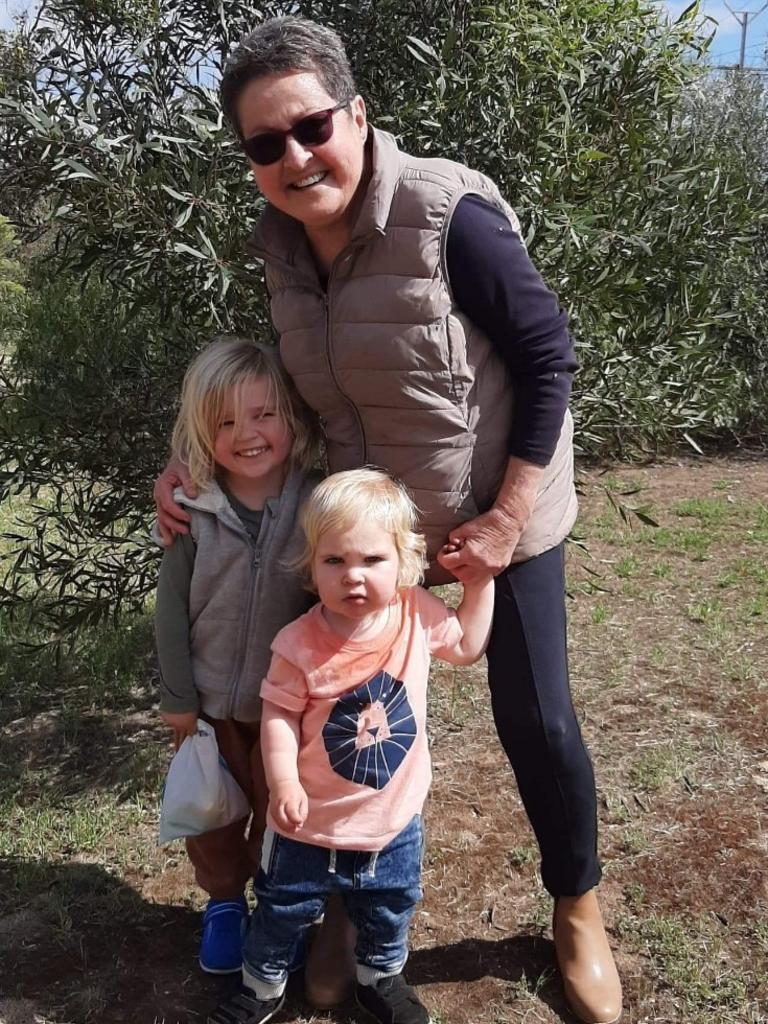18 March 2021
The below article was written by Elizabeth Henson and originally published by The Advertiser. Read The Advertiser article here.
When Advertiser journalist Elizabeth Henson took her mum to the emergency department, it was during a “busy shift”. It cost her mother’s life.

When Dad and I took Mum to the Lyell McEwin Hospital in November last year, we thought she had a sinus infection.
It had happened before. Last time though, a few years ago, Mum ended up with meningitis.
So this time, we were taking no chances when she began developing symptoms.
We figured an emergency department doctor would pump her full of antibiotics and send her on her way.
Instead, Mum died a week later.
And this week, SA Health’s Northern Adelaide Local Health Network has confirmed what my family already knew – that Mum was made to wait too long in the Lyell McEwin’s emergency department before she was seen by a doctor.
But not only that, their investigation found mistakes were made in the handling of her case.
Sadly, emergency room overcrowding is becoming an all-too-common occurrence in SA’s metropolitan hospitals. And it is time for excuses to stop and genuine, tangible action to be taken to prevent further tragedy.
Those looking into Mum’s case say they are unable to determine if earlier treatment would have saved mum’s life – so we’ll never know – but it would have been nice if she’d had a fighting chance.
This is Mum’s story.
According to the Coroner, Mum died of acute liver failure brought on by a paracetamol overdose, coupled with multiple myeloma and heart failure. Her multiple myeloma, while incurable, was being managed.
On other occasions when she had presented at the ED and informed the triage nurse of her history of cancer and fever, she was immediately seen so we were concerned when she was told to wait on the evening of November 23.
This was during the period when about 90 hospital staff had to isolate due to the Parafield (COVID-19) Cluster.
After about two hours of waiting, a nurse spoke to Mum and me in the waiting room, and asked Mum what medication she’d had that day.
Mum told her how much paracetamol she’d had. The nurse remarked that she’d taken too much and seemed concerned. Mum usually underdosed, which was a whole other issue, but on this one, single day she accidentally took too many.
Ignorantly, I argued with the nurse that the immediate concern was a sinus infection (how I wish I were right!) and that Mum normally doesn’t have to wait, but the nurse swiftly informed me that the paracetamol overdose was the most important issue at that time because it could cause liver failure – which we now know happened.
Despite this, Mum was made to wait another three hours before she was eventually seen in the early hours of the next morning. According to the hospital’s documentation, she waited five hours and 10 minutes. They obviously couldn’t include the initial wait that occurred to even register attendance at the triage desk.
Mum was then rushed to the Royal Adelaide Hospital where intense treatment to flush out her system began. She appeared to start coming good over the following days but ultimately deteriorated, with the liver failure sparking multiple organ failure (heart etc), and passed away on November 30.
After raising concerns about Mum’s delayed treatment, NALHN investigated her case.
“The reviewing team acknowledge the missed opportunity to assess for and commence specific treatment for paracetamol toxicity earlier, and apologise most sincerely that this did not occur,” the NALHN letter read.
Investigators found the nurse documented the paracetamol overdose but “unfortunately this information was not specifically handed over to the doctor who assessed your mother”.
As such, Mum was prescribed more paracetamol after she was seen by a doctor.
And while Mum should have been treated earlier for a paracetamol overdose, it turns out that even without taking that into consideration, she should have been seen much sooner regardless.
Investigators said Mum was given a triage score of “3”, which meant she should have been seen within 30 minutes of arrival.
“Given your mother’s clinical history of multiple myeloma and fever … a (triage) score of ‘2’ may have been more appropriate for her condition (which) would have resulted in an earlier assessment,” the letter read.
“We apologise most sincerely for the delay she experienced during this busy shift.”
A busy shift is no excuse. As a result of the investigation, the hospital will be educating its staff on how to identify excessive paracetamol consumption and how to escalate such cases. It also noted nurses should be empowered to speak up when cases need to be escalated.
With all this in mind, I can’t help but wonder how much of an impact incessant overcrowding is having on our hospitals.
Human errors can occur in any situation, but it surely can’t help our doctors and nurses when hospitals are swamped and do not have the resources to keep up with demand.
The State Government continually tells us that its priority is keeping South Australians safe from COVID-19, and creating and retaining jobs during the pandemic.
SA is in a relatively good position health-wise in relation to the pandemic. Authorities have handled it well.
However, I’d argue right now people are at a greater risk of poorer health outcomes, and even death, due to delays in emergency departments.
COVID-19 is under control – it’s time the government got the rest of its house in order.
People don’t care about the politics – they just want a safe, reliable hospital system they can turn to in their time of need. South Australians deserve real solutions, not excuses.
Miss you, and love you, Mum.